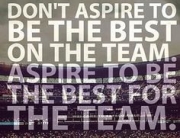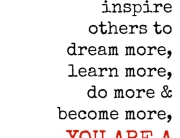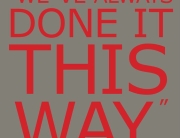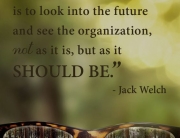 Trying to be perfect is a huge challenge; however, we can be consistent. Early in my career as a network engineer, I spent a lot of time wiring cabinets that housed network equipment. While working at the GE Military Systems Division, I had the opportunity to work on various government projects and within a number military facilities. During that time I found out that my skills regarding wiring communication cabinets were average in comparison to military specifications. I was truly in awe when I had the opportunity to tour various government data centers. The military’s equipment cabinets resembled works of art and they border-lined perfection. The cables were color coded, the restraints were evenly distributed and the cable bends were uniformed. I was inspired by the military’s high standards and I adopted some of the their techniques. I quickly found out that we just didn’t have the time or resources to build cabinets to military standards. However, we were able to provide a consistent rack build-out that was neat and flexible. Our rack layouts met our requirements, they were not perfect but consistent. Sometimes we go out of our way trying to cover every little detail above the requirements or the call of duty. Some of us are often seeking perfection when we just need consistency. To be clear, we should continue to strive to do our best. However, we must consistently marry knowledge and wisdom to maintain a consistent level of effort based on the goal.
Trying to be perfect is a huge challenge; however, we can be consistent. Early in my career as a network engineer, I spent a lot of time wiring cabinets that housed network equipment. While working at the GE Military Systems Division, I had the opportunity to work on various government projects and within a number military facilities. During that time I found out that my skills regarding wiring communication cabinets were average in comparison to military specifications. I was truly in awe when I had the opportunity to tour various government data centers. The military’s equipment cabinets resembled works of art and they border-lined perfection. The cables were color coded, the restraints were evenly distributed and the cable bends were uniformed. I was inspired by the military’s high standards and I adopted some of the their techniques. I quickly found out that we just didn’t have the time or resources to build cabinets to military standards. However, we were able to provide a consistent rack build-out that was neat and flexible. Our rack layouts met our requirements, they were not perfect but consistent. Sometimes we go out of our way trying to cover every little detail above the requirements or the call of duty. Some of us are often seeking perfection when we just need consistency. To be clear, we should continue to strive to do our best. However, we must consistently marry knowledge and wisdom to maintain a consistent level of effort based on the goal.
You will not always have the time, money or talent to produce exceptional work.
Questions we should ask stakeholders and ourselves:
- What is the goal?
- Do we have a clear list of requirements?
- What are the standards?
- What are the resources and time constraints?
- What are we willing to sacrifice?
Is general perfectionism a weakness that needs to be governed? If we can govern perfectionism we can use it as a strength to maintain high standards.
We want to execute to the best of our ability but we also need wisdom to fully understand the goal. Are we building services for sustaining life or are we designing a cup holder?
“Don’t lose courage in considering your own imperfections” – St. Frances De sales






